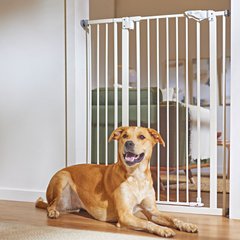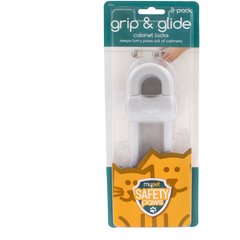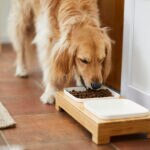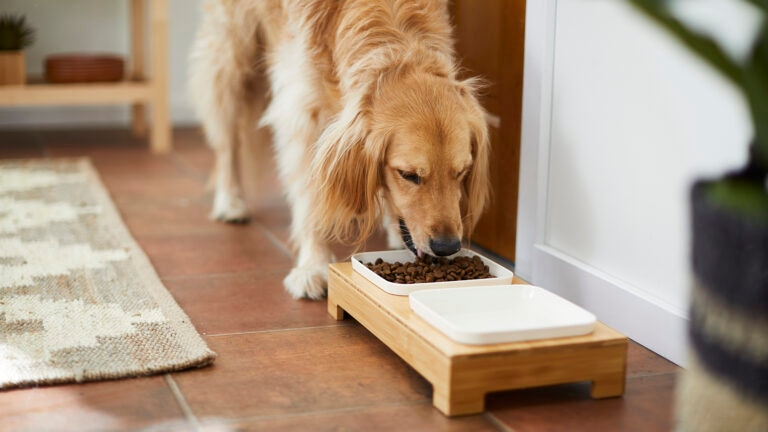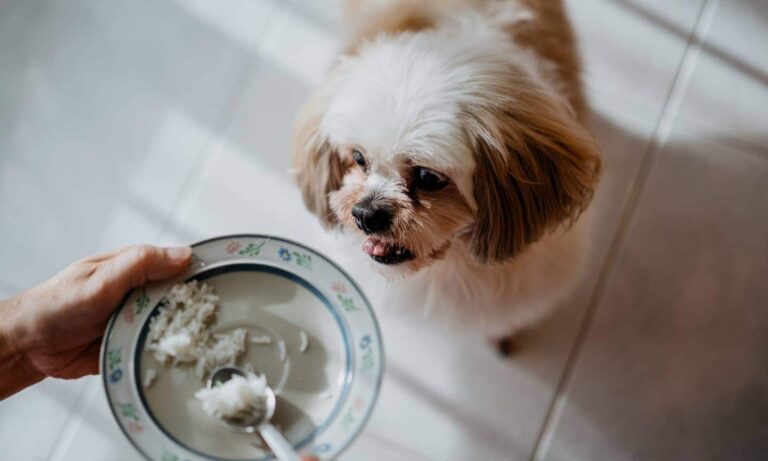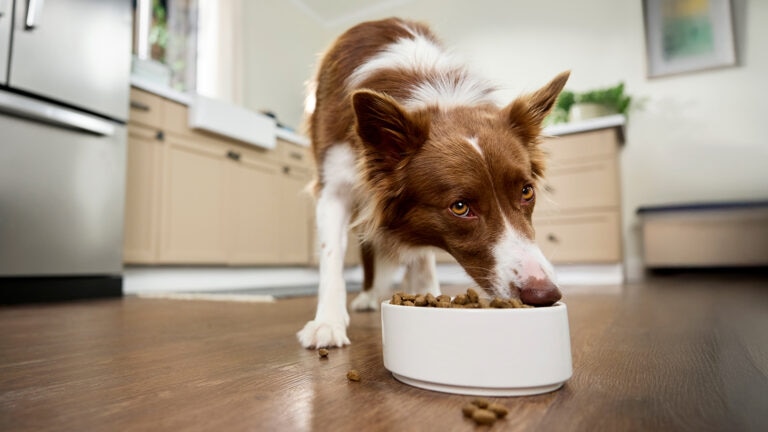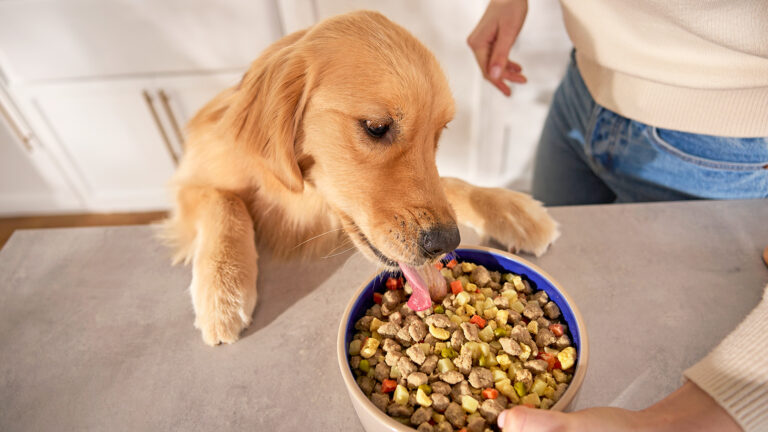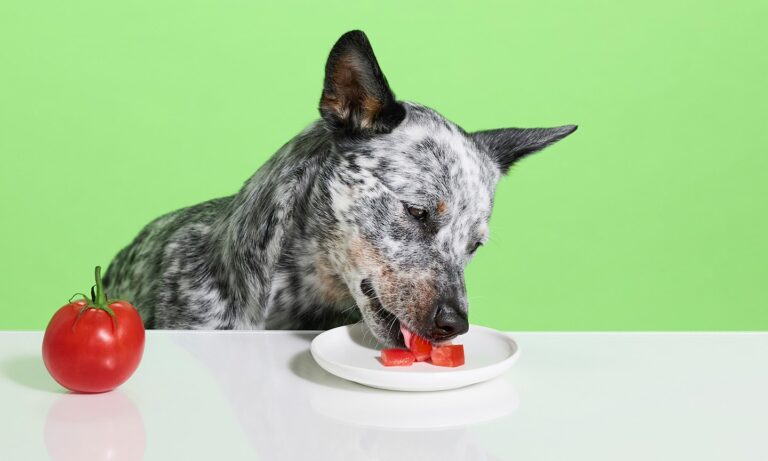Can Dogs Have Nutmeg?

Photo by Chewy Studios
Nutmeg is one of the most popular flavors of the holiday season. And while your four-legged bestie is watching you bake pumpkin pies and other fall treats, you may be wondering, “Can dogs have nutmeg?”
Unfortunately for them, the answer is no. Here’s everything you need to know about nutmeg and dogs, including the signs of nutmeg toxicity and when to take them to the vet.
Can Dogs Have Nutmeg?
No, dogs should not have nutmeg in any form. That includes whole nutmeg, ground nutmeg powder, and nutmeg essential oil, says Sam McDonald, DVM, medical director of Veterinary Emergency Group (VEG) in Cedar Park, Texas.
While the Pet Poison Helpline® states that a dog would have to consume a very large amount of nutmeg to experience toxicity symptoms, it’s simply not worth the risk.
Is Nutmeg Bad for Dogs?
Nutmeg contains a toxic compound called myristicin. It’s a hallucinogenic in dogs and can significantly increase heart rate and blood pressure, which can put strain on your dog’s heart.
In lower doses, it can cause gastrointestinal upset in dogs. In higher doses, it can cause serious side effects and even death.
Nutmeg Poisoning in Dogs
According to Courtney Deer, DVM, emergency and critical care veterinarian at 1st Pet Veterinary Centers in the Phoenix area, a toxic dose can be as little as 1 teaspoon of ground nutmeg or three whole nutmegs.
While a small bite of pumpkin pie or gingerbread isn’t likely enough to cause major issues in dogs, these desserts could contain other ingredients that might also cause digestion issues, especially when combined with nutmeg.
Feeding dogs human food that contains sugar and/or butter can not only lead to unnecessary weight gain but could also cause pancreatitis. This is especially true for dogs with sensitive tummies or dogs who are prone to digestion issues.
It’s best to use the precautionary principle here: When in doubt, leave it out. Even if your dog only has a nibble or two, it can upset their stomach.
It’s always better to avoid any human food and stick to treats that were formulated for dogs.
Signs of Nutmeg Toxicity
The signs of toxicity are dependent on the dose.
If your dog eats only a small amount, symptoms usually only affect the digestive tract—meaning your dog may exhibit digestive-related issues like vomiting or nausea. If your dog eats a large dose, you’ll see more widespread signs.
The most common signs of nutmeg toxicity are:
- Vomiting
- Diarrhea
- Nausea
- Lack of appetite
- Muscle spasms
- Disorientation
- High body temperature
- Seizures
- Hallucinations
If you suspect your dog has gotten into some nutmeg and you see any of these signs, call the Pet Poison Helpline (855-764-7661) and/or your local emergency vet ASAP.
Dr. McDonald says you’ll likely have to go in to have your dog evaluated as soon as possible so a vet can do an exam and figure out the best plan for supportive care.
Bring any containers, product labels with ingredients, or any other information you may have about what your dog ingested. This can be very helpful to the veterinarian or Pet Poison Helpline when treating your dog.
How To Treat Nutmeg Poisoning
Treatment for nutmeg poisoning depends on the severity of the toxicity.
Care will be more intensive if your dog ate higher doses of nutmeg, but may involve one or all of the following approaches, depending on when your dog ate the spice:
- Induced vomiting (making dogs throw up)
- Subcutaneous fluids
- Activated charcoal
- Anti-nausea medication
- IV fluids
- Hospitalization
During treatment, your veterinarian will likely monitor heart rate and blood pressure as well, because high doses of nutmeg can affect your dog’s cardiovascular system.
How To Prevent Dogs from Eating Nutmeg
The best way to prevent dogs from eating nutmeg is to keep the spice—and all nutmeg-laden sweet treats—far away from them.
It’s worth noting that most recipes contain no more than 1 teaspoon of nutmeg, meaning a dog would need to eat quite a bit of the dessert to see effects, according to Dr. Deer.
That said, if a dog eats a whole pie that’s cooling on the countertop, it may be an issue.
Here are some tips for preventing dogs from eating nutmeg:
- Store all baked goods. Make sure all baked goods are safely stored away from your dog and pushed back from the counter edges where your dog can reach.
- Keep dogs out of the kitchen. If you have an especially curious or food-motivated pup, you may want to keep them out of the kitchen entirely while baked goods are out, says Dr. McDonald. (A dog gate can help!)
- Lock up the spice rack too. McDonald says that dogs are very curious by nature and may decide that the spices themselves look appetizing. And if your dog gets into the spice jar, they’re more likely to consume a toxic dose.
- Keep treats out of reach. It’s a good idea to store spices in an upper cabinet out of reach from your dog, if possible. You can also use pet-proofing cabinet locks if you store your spices where your dog can reach.
Recommended Products
FAQs About Nutmeg and Dogs
Is nutmeg poisonous to dogs?
Yes, nutmeg is poisonous to dogs and can be fatal in high doses.
One teaspoon of ground nutmeg or three whole nutmegs is enough to cause symptoms.
Can dogs have allspice?
Like nutmeg, allspice is derived from evergreen trees and can be toxic to dogs, according to Dr. McDonald. Be cautious to avoid accidental ingestion of both spices when baking.
Which spices are toxic to dogs?
Many spices are toxic to dogs.
Some of the most common spices toxic to dogs are:
- Nutmeg
- Allspice
- Garlic
- Cloves
- Onion powder
It’s best to keep your pets away from the entire spice rack to be safe.
This content was medically reviewed by Chewy vets.
